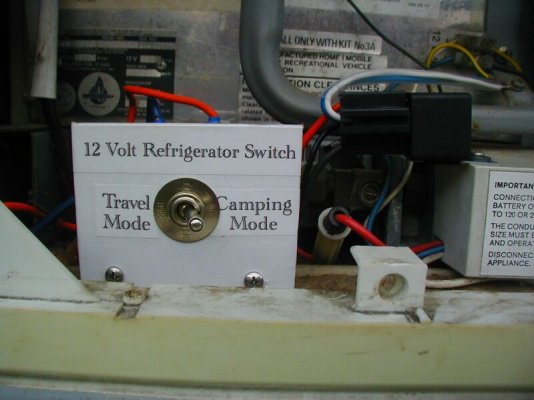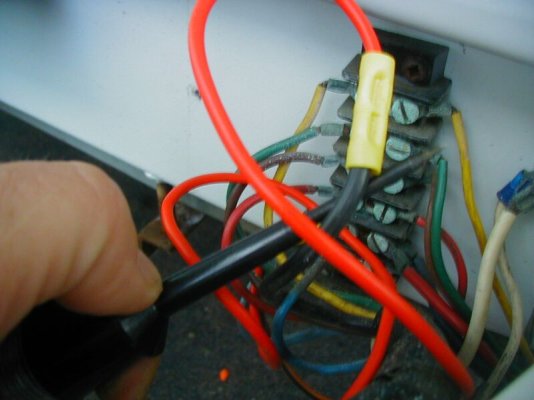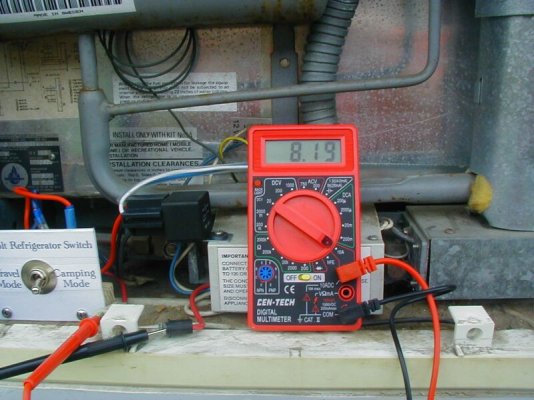garyk52
Senior Member
As most of you know, when traveling and running the refrigerator on 12 volts, when you stop for a time you either have to turn the refrigerator off or deal with it running down the camper battery. I rewired mine so when I turn off the truck it also cuts power to the refrigerator, but it will also charge the camper battery on the road. I used a single pole double throw center off 12 volt 30 amp switch and a 30 amp 5 pin relay (really only needed a 4 pin) Not charging the camper battery would eliminate the relay. To wire I needed to cut the 12 volt wiring going to the refrigerator and add a wire to the black wire on the pigtail from the vehicle and run it into the refrigerator compartment. After cutting the refrigerator wire I added female connectors to all 3 ends. The one from the refrigerator goes on the middle of the switch and the other 2 go on the ends. The relay gets wired with solenoid positive wire going to the wire coming from the pigtail (that I added and is energized only when the key is on) and naturally the negative goes to ground. The other 2 wires from the relay go on either end of the switch with the other wires. Now while going down the road I throw the switch to travel mode and the camper battery charges and the refrigerator works. I turn the vehicle key off and it cuts power to the refrigerator and the relay so it doesn't keep the refrigerator running draining the camper battery. When I get to the campground I open the cover for the refrigerator and set the switch to camping mode and it works normally.
Attachments
Last edited:




